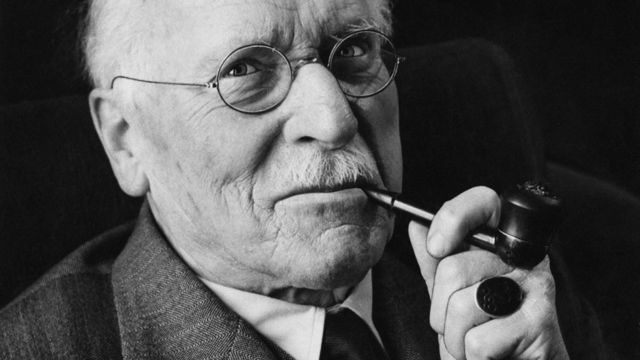Doctor Carl Jung was a revolutionary Swiss psychiatrist, from the early 1900’s who founded the field of analytical psychology. While mainly noted for -his work as a pioneering psychiatrist, he was well rounded, forward thinking student of philosophy, anthropology, archaeology, literature and religious practices. He was a very talented writer as well, though many of his works were not published until after his death. The new branch of psychiatry he developed is still practiced to this day. It focuses on the importance of the individual psyche and the personal quest for for ‘wholeness’. In the process of developing analytic psychiatry he branded concepts such as the archetype, the collective unconscious, (a) complex and extroversion vs introversion.
Dr. Jung was concerned with individual development in relation to society. He developed the now common place concepts used to describe different personalities and their make up. Personal growth had priority of his studies that he sought to quantify and qualify. He realized that, when talking about such personal elements of life, they were very subjective. By studying people as individuals he sought to make the human experience less mysterious. He wanted to make it easier for people to relate to one another.
One way Dr. Jung sought to bridge the gaps between people, was with the term ‘archetypes’. It can be used to bridge many abstract elements to each other or ground them to real world issues or culture. Archetype is a very typical example of a person, place, thing or situation. It can also refer to an original work that has been imitated or refer to a recurring symbol or motif in literature, art or mythology. By explaining these very abstract concepts in plain and easy to understand terms, Dr. Jung was a forward thinking man. Many philosophers, doctors, scientists and politians have used the platform Dr. Jung created to build on.
25 OF THE MOST THOUGHT PROVOKING CARL JUNG QUOTES
1. There is no coming to consciousness without pain.
2. The shoe that fits one person pinches another; there is no recipe for living that suits all cases.
3. The word ‘happiness’ would lose its meaning if it were not balanced by sadness.
4. In all chaos there is a cosmos, in all disorder a secret order.
5. The healthy man does not torture others – generally it is the tortured who turn into torturers.
6. A man who has not passed through the inferno of his passions has never overcome them.
7. It is a fact that cannot be denied: the wickedness of others becomes our own wickedness because it kindles something evil in our own hearts.
8. Your vision will become clear only when you can look into your own heart. Who looks outside, dreams; who looks inside, awakes.
9. Neurosis is always a substitute for legitimate suffering.
10. It all depends on how we look at things, and not how they are in themselves.
11. Mistakes are, after all, the foundations of truth, and if a man does not know what a thing is, it is at least an increase in knowledge if he knows what it is not.
12. The collective unconscious consists of the sum of the instincts and their correlates, the archetypes. Just as everybody possesses instincts, so he also possesses a stock of archetypal images.
13. Dreams are the guiding words of the soul. Why should I henceforth not love my dreams and not make their riddling images into objects of my daily consideration?
14. The greatest and most important problems of life are all fundamentally insoluble. They can never be solved but only outgrown.
15. Shrinking away from death is something unhealthy and abnormal which robs the second half of life of its purpose.
16. For a young person, it is almost a sin, or at least a danger, to be too preoccupied with himself; but for the ageing person, it is a duty and a necessity to devote serious attention to himself
17. Understanding does not cure evil, but it is a definite help, inasmuch as one can cope with a comprehensible darkness.
18. Our heart glows, and secret unrest gnaws at the root of our being. Dealing with the unconscious has become a question of life for us.
19. All the works of man have their origin in creative fantasy. What right have we then to depreciate imagination.
20. Often the hands will solve a mystery that the intellect has struggled with in vain.

